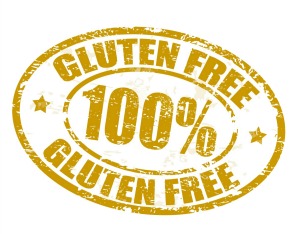Could Going Gluten Free Cause Inflammation?
March 1, 2017
You either decided or you have been told that you should go gluten free. Cutting out gluten containing products certainly cuts down on the amount of processed foods you eat unless of course you decide to choose to replace those in foods with ” Gluten Free” processed foods.
An article from Dr Mark Hymen explains why Gluten Free Foods are also a big problem. My take is just take out Gluten! That’s it, no replacement etc… It’s the same as saying let’s cut out sugar and then choose to replace it with sugar free chemicals like Aspartame etc … same same right.
Enjoy the article.
Unless you’ve lived under a rock these past few years, you know gluten-free has become a major buzz term. Restaurants proudly offer gluten-free bread and even mainstream supermarkets have whole aisles dedicated to the trend. Nearly everyone has jumped on the gluten-free bandwagon.
But not so fast: As a doctor treating sick patients, I’ve seen that gluten often becomes a major cause of digestive, autoimmune, weight, mood, and neurologic problems. While ditching gluten would seemingly delight me, I want to point out some downsides to this so-called fad.
What are the downsides to going gluten-free?
The biggest problem about demonizing a food substance is when the food industry manipulates “Frankenfoods” by removing ingredients and adding other bad stuff instead.
As gluten-free gains popularity, food companies—well aware of a potential marketing opportunity—turn regular junk foods into “healthy” gluten-free versions. Don’t be fooled. It’s still junk food.
Those cookies say “gluten free” in glowing bold letters, but turn the box around and read its ingredients: Those types of products are usually higher in sugar, flours (that converts to sugar), inflammatory fats like vegetable oil, and weird foodlike additives that add up to big profits for these companies and added padding around your midsection while sabotaging your health.
Sometimes patients switch from cupcakes and cookies to gluten-free cupcakes and cookies. “Why do I feel like crap and struggle to lose weight?” they then wonder.
Well, besides usually being higher in sugar and other junk ingredients, the gluten-free claim creates a “health halo” so you’re often reaching for seconds and thirds. Gluten-free, sugar-loaded, and trans-fat-added foods raise blood sugar levels and contribute to inflammation, which plays a role in nearly every disease.
How can you go gluten-free in a healthy way?
A true gluten-free diet doesn’t include fake foods like cookies or bread. Nature created its own gluten-free diet: An avocado is gluten-free naturally; so are almonds and broccoli.
I help my patients go gluten-free without falling into the duplicitous marketing trap with these five strategies:
1. Cook at home.
The cure for what ails you—in your body and in our nation—can be found in the kitchen: the very first step to reclaim your health. When you do your own cooking, you know no gluten or other harmful, inflammatory ingredients are slipping into your food.
2. Stop buying the “healthy food costs more” myths.
We have become brainwashed into thinking cooking real food costs too much, is too hard, and takes too long, so we rely on “inexpensive” convenience foods that ultimately take a toll on our wallets and our health. We trade health for “convenience” that hardly proves convenient when we become sick. Research shows eating real food doesn’t have to be more expensive or time-consuming.
3. Don’t let the food industry trick you.
If you see a health claim on the label, be VERY suspicious: The label’s front is food marketing at its cleverest, designed to seduce you into an emotional purchase that tricks you with misleading claims.
4. Read your ingredients.
If real food is at the end and sugar or ingredients you don’t recognize are at top of the list of ingredients, put it back. The most abundant ingredient is listed first. Others are listed in descending order by weight. If you see any words on the label you can’t pronounce, you should probably avoid it.
5. Avoid all foods with labels.
Here’s an extra step to guarantee you avoid sugar, trans fats, and other junk ingredients. Just eat real whole food. Before you analyze numbers or anything else on a label, ask yourself if this food could have been served at your great-grandmother’s table.
Eating a balanced diet these days is all about eating real, unprocessed foods. With these five strategies, you can stay gluten-free and keep your weight-loss goals intact too.
